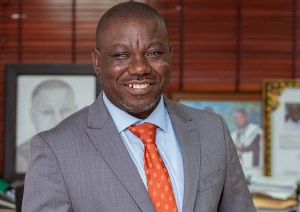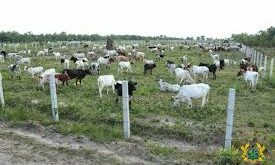The International Monetary Fund (IMF) has confirmed that Ghana is in debt distress, a deputy Ranking Member on Parliament’s Finance Committee, Isaac Adongo, has alleged.
According to him, the development comes after the Fund, in its latest Monetary and Capital Monitor report, affirmed Ghana has attained ‘the unenviable economic status of a debt-distressed economy.’
In a write-up sighted by GhanaWeb, Isaac Adongo said the country’s economy which has been on edge for about three years now, without any meaningful programs to sustain it is moving towards much tougher times.
“The latest report placed Ghana as the only country in West Africa to be a debt-distressed economy. It is also one of four countries in Africa, following in the footsteps of Tunisia, Zambia and Ethiopia in the continent,” Isaac Adongo opined.
“In the global perspective, Ghana is now peers with Lebanon, Sri Lanka, Al-Salvador and Surinam. Such is the results of the unprecedented level of mismanagement of the economy and the disastrous showing of Dr Mahamudu Bawumia in managing Ghana after years of unabated public lectures in self-adulation,” the lawmaker wrote.
In addition to this, the Deputy Ranking Member on Parliament’s Finance Committee said government is also struggling to find liquidity in order to borrow funds to either switch or redeem its maturing bonds.
“Apart from the categorization being evidenced by the widening yield on the country’s eurobonds, the debt-distressed status for Ghana has been very pronounced in the domestic bond markets as the government has been struggling to find liquidity in to borrow to switch or redeem maturing bonds,” portions of his write read.
Read Isaac Adongo’s full write up below:
Ghana’s worsening debt crisis and self-inflicted economic meltdown
Ghana’s worsening debt crisis and self-inflicted economic meltdown has assumed embarrassing international rave reviews.
While at it, the man once wrongly touted as ‘economic whizkid,’ Dr Mahamudu Bawumia, is now at his wits’ end. He is actively avoiding public commentary on the economy and gradually replacing his Constitutionally defined role of Head of the Economic Management Team with that of Head of ICT in a government gasping for breadth. But, for how long can Bawumia last?
Ghana is now a debt-distress country, says the International Monetary Fund (IMF)! On February 14 this year, the eagle eyes of the IMF fished out Ghana as having attained the unenviable economic status of a debt-distressed economy in its latest Monetary and Capital Markets Monitor report.
After almost three years sitting on the edge as a country at a high-risk of debt distress without any meaningful programs to turnaround the economy, Ghana slipped into the inevitable – debt-distress.
The latest report placed Ghana as the only country in West Africa to be a debt-distressed economy. It is also one of four countries in Africa, following in the footsteps of Tunisia, Zambia and Ethiopia in the continent.
In the global perspective, Ghana is now peers with Lebanon, Sri Lanka, Al-Salvador and Surinam. Such is the results of the unprecedented level of mismanagement of the economy and the disastrous showing of Dr Bawumia in managing Ghana after years of unabated public lectures in self-adulation.
Classifications
To help put things into proper perspective, the IMF Monetary and Capital Markets Monitor classifies countries’ risk of debt-distress in three categories:
Those with Low Risk are considered as the best, followed by High Risks and Distressed as the worse and the worst respectively.
It is instructive to note that Ghana has been in the High Risk category for the past three years but has now “dropped down” into the red zone, which is the very last zone. It cannot be worse than this.
This category into which Ghana is placed is consistent with the Cas1 rating that Moody’s Investor Services assigned to the country earlier this month.
Unfortunately, it drew an awkward petition for ‘remarking’ and a diplomatic request for a review by the Africa Union (AU) at the instance of President Nana Addo Dankwa Akufo-Addo. With the IMF also classifying the economy as in debt distress, one wonder who next the Akufo-Addo-Bawumia government will petition with a plea for the IMF to review its categorization of the country.
Widening yields
Apart from the categorization being evidenced by the widening yield on the country’s eurobonds, the debt-distressed status for Ghana has been very pronounced in the domestic bond markets as the government has been struggling to find liquidity in to borrow to switch or redeem maturing bonds.
Last Thursday, February 17, Government embarked on the now too familiar act of restructuring of maturing Two-year treasury bonds totalling about GHS1.08 billion.
By this, the Government of Ghana did not only coerce holders of these maturing Two-Year Treasury Bonds to restructure or rollover the bonds, it also compelled investors to accept a coupon of 19.75% at a time the bid on similar bonds, including the Government’s 2024 and 2025 bonds were trading at a discount of GHS80 per bond with yields of 21%. Essentially, what this action means is that it is risky to do business with this government.
From the analysis, these investors lost about GHS20 per bond the next day of trading if they sold out to get liquidity or marked these bonds to their values in the market as part of International Financial Reporting Standards (IFRS) requirements of valuation of Financial Assets.
In total, these investors or bondholders took a hit or hair cut of about GHS200 million, thanks to the incompetence and mismanagement of the Nana Addo-Bawumia Government. No wonder the cedi is now shedding off its value in bouts, resulting in Bloomberg classifying it among the worst performing currencies in the world.
The cedi complaints
Interestingly, I have heard Nana Addo say he is upset and anxious about the depreciation of the cedi and further disclosed that efforts were underway to address the “recent depreciations”.
President Akufo-Addo, don’t address only the “recent depreciations”. Please address the “past depreciations” too. By the way, who is President Akufo-Addo complaining to? He should stop being a weakling.
Your Economic Management Team-lead, Dr Bawumia has been a monumental disaster but you are not bold enough to mention this because of your upcoming internal presidential contest.
Unfortunately, Mr President, the cedi has no eyes to read your book of lamentations. There can be no substitute to sound economic management by competent hands to get the cedi to hold its own against the major foreign currencies.
Bank of Ghana’s artificial rate
When you have a Central Bank that looks on sheepishly as all countries are hiking interest rates to ‘repatriate’ their ‘tourists funds’ that strayed into countries such as Ghana in search of high returns, what do you expect?
How can Bank of Ghana that keeps a political and artificial policy rate at 14.5% expect to anchor inflationary expectations after such high levels of fiscal dominance, resulting from a fiscal expansion from GHS55 billion in 2019 to GHS145 billion in 2022 with significant upside risks to inflation?
Clearly, the challenges yielding directly from this unsustainable debt service level in the budget is compromising monetary policy decisions. Sadly, the central bank optimally reviews interest rates to mop up excess liquidity, using a collapsed financial sector that is suffering from lack of confidence of citizens who lost their life-savings to the predatory regulatory collapse of financial institutions of perceived political enemies.
Somebody closed to President Akufo-Addo should tell him that exchange rates do not respond to Presidential tantrums, anxieties and empty talks; they respond to forex liquidity in the market. After several years of resorting to annual debt-induced injection of $3billion of forex from Eurobonds, how were you expecting the economy to deal with headwinds such as lack of access to the capital markets?
With the level of a potentially unreasonable arbitrage caused by the unrealistic policy rate and treasury bill rate, Ghana’s financing challenges, forex and cedi liquidity as well as the high level of funds outside of the financial system will only make a terrible situation atrociously dreadful as credit, exchange rate depreciation and inflation spiral.
Instead of calling on the West to lower their heads in shame for not giving you too much of their taxpayers’ funds to finance your corruption-stricken Government, you must bow your head in shame for being the only Government in West Africa whose window-dressed, collapsed economy has been badly exposed by Covid-19 and is now crumbling on daily basis to all time-tested metrics.
Source: www.ghanaweb.com
 Home Of Ghana News Ghana News, Entertainment And More
Home Of Ghana News Ghana News, Entertainment And More





